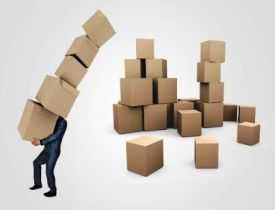


Materials Management is the study of managing raw material, optimum production and delivery of the product to the customer. The course content includes aspects, of logistics, supply chain management, storage management, risk management etc
Meaning, definition, scope and functions of Materials Management, Objectives and Advantages of Materials Management, Interfaces of Materials Management: Internal and external interfaces. Organization for Material Management,: Concept, objectives of supply – production and distribution system, Role and Management of flow of material in supply chain management, Linkages with other functional areas of Management i.e. Production, Accounting and Finance, Marketing, HRM, IT, TQM. A Brief discussion on the functions of each functional area of Management, Familiarity with broad categories of production processes used in industries, Commonly used machines and tools in industries.
Meaning and objectives of purchasing, steps involved in material procurement, purchase requisition, selection of suppliers, vendor development & rating, make or buy decision, floating of enquiry, preparation of tender notices, comparative statement, placing of purchase order, follow up, inspection of incoming material, verification of bills. Statistical quality control, value analysis, pricing theory, Request purchasing organization to procure a certain list of materials, internal document and remains within the organization, Uses of Requisition, authorizes the Purchasing department to purchase materials or services in specific quantities within a specified time fram
Inventory Management: Meaning, Definition and Objectives of Inventory management, Types of inventories and cost of inventories, Inventory management and control, process of inventory management and control, Techniques of Inventory Control, Perpetual and periodic inventory systems; Materials Requirement Planning MRP), Just in time system. Materials management: Integrated concept, material planning and budgeting, Materials Budget, management of Supply –Bayesian Analysis. Purchasing, Vendor Selection, Vendor Rating, Negotiating, Learning Curve Concept.
Material planning and factors affecting the planning, store location and layout, storing methods and equipments, procedure for issue of material and receipt of materials, store record keeping, bin card system, protection and physical verification of stores, Layout of stores and warehouse, material handling in stores, physical control of stocks : obsolete, surplus and scrap Management, accounting and record keeping of stores, classification, coding and codification systems, Case studies, physical control of materials, Minimization of material losses due to obsolescence and handling.
Concept, advantages and objectives of forecasting for materials management, Types of forecasting, methods of forecasting, statistical approach in forecasting, least square method of forecasting, Identifying the Quantity Requirements: Determine what quantity is on hand, in an open purchase order, planned for manufacturing, already committed to existing orders, and forecasted. These requirements are specific to each company and each company location and change with the date, Materials Structure Tree, Gross Materials Requirement Planning, Net Materials Requirement Planning.
Concept, objectives & advantages of material handling in industries, Classification of material handling equipment, working and uses of conveyors such as belt conveyor, roller conveyor, screw conveyor with relative example, Working & uses of fork trucks, pallets, cranes such as overhead type, pillar type and mounted mobile type of cranes. Advance material handling systems, Develop the strategies that can be taken to find the best paths to route vehicles to deliver and collect goods at multiple stops, Know basic characteristics and costs of warehousing and materials handling activities.
© . All Rights Reserved. Designed by Om talwar